Nobody gives out a life. Ian Newland was certain of that, so when Mike Conklin sat down with him at a Denver restaurant to talk about a "life scholarship," that would help him take care of his wife and two children, Newland was skeptical.
His doubts, like many veterans in his position, stemmed from empty promises by well-intentioned individuals who could not imagine the challenges men and women face after being severely wounded while serving their country. Newland suffered countless shrapnel wounds throughout his body when a grenade exploded inside the Humvee he and four other Soldiers were riding in near Adhamiyah, Iraq.
An Ohio native, he had heard from friends how beautiful the Colorado Springs, Colo., area was. He was ready for a change of scenery after existing in a haze of medical and administrative bureaucracies for months after returning to his headquarters element in Germany. "They weren't prepared to handle guys like me," Newland said. His unit released him from duty, but red tape prevented him from returning to the U.S.
Newland insists his eventual meeting with Conklin, the national director of the Sentinels of Freedom Foundation, was the result of a series of miracles. He spoke with his wife, and together they decided he would travel to Fort Carson, Colo., to assess employment opportunities and housing options. "I pulled out all of my savings and bought a plane ticket from Germany to Colorado," he said, not sure what, if anything, he would find.
While at Fort Carson, Newland met with the civilian personnel director, anxious to proffer his military experience into a job, but walked out of the office without any guarantees. His efforts to find housing for his family met with resistance by lenders who would not accept his military pay on the loan application, citing that he was only months from discharge with no guarantee of future income.
Discouraged, Newland said he felt compelled to go to the chapel. "I was still limping and using a cane, still bandaged up when a man approached me outside the chapel and asked me if I was a Soldier wounded in Iraq," he said. That man, Dennis McCormack, worked with the Army Wounded Warrior Program at Fort Carson. "He said he just got back from a meeting with a group of realtors and businessman who build scholarships for guys like me."
McCormack took Newland to meet with Joe Clement at REMAX in Colorado Springs and from his office, Newland spoke with Conklin for the first time. "I told him my story, how I hadn't been finding much success, how I was broke and broken. He said, 'I want you to come to Denver and meet with me.'" Clement arranged for a rental car, and Newland was on his way to Denver.
Even after their initial meeting, where Conklin described the details of the scholarship program, took copies of Newland's medical records and exchanged contact information with him, the injured Soldier was still doubtful. "I thought, 'If this is real, it would be like winning the lottery,'" he said. "But I still couldn't trust it. I was looking for the fine print."
Newland returned to Germany, uncertain what the future held for he and his family. On Father's Day, while sitting with his wife at the computer, he broke down. "I just started crying. Our future was so uncertain. I felt like I was letting my family down," he said. His wife suggested they pray for guidance.
"As we were praying, I kid you not, we heard, 'You've got mail,' from the computer." The message was from Mike Conklin, and it was the first of many Newland would receive. He had been awarded a Sentinels of Freedom scholarship.
Within weeks, he and his family were welcomed to the Denver area with a fully furnished home and car donated by supportive members of their new community. "They thought of everything," Newland said. "From that moment on I knew life was going to be better. What has happened in my life is a living miracle."
Chase Gean and Ben Crowley faced doubts similar to Newland's regarding the Sentinels of Freedom. "You get a lot of empty promises from people," Crowley said. "They are well-meaning, but when they get outside Walter Reed on Georgia Avenue, those promises slip their minds."
Crowley was on patrol in Afghanistan when an improvised explosive device detonated, shattering both his legs. Doctors saved his left leg, but the right leg had to be amputated. While recovering and rehabilitating at Walter Reed Army Medical Center, he met a Department of Veterans Affairs representative who put him in contact with Conklin. "I was still skeptical. It wasn't until I actually received a job offer that I realized the program was for real."
Crowley now works as a project manager for Chevron. Although he is originally from Georgia, the California Bay Area community where he now lives welcomed him with open arms.
"They are some of the finest human beings I've ever known," Crowley said. "They welcomed me like a son, and told my parents, 'Don't worry about him. He's got a family out here too.'"
He added that one of the greatest strengths of the program is its grassroots nature, void of a standard, formalized process that ignores the individual. "I don't just think it's a great program, it is that. But the program's design is optimal - it is catered to your personal needs. Communities need to model their own programs after the Sentinels of Freedom."
Gean was wounded while on patrol in an Afghan village near the Pakistan border. Snipers attacked his unit, and he was hit in the back about a half-inch below his body armor. Although the bullet did not hit his spine, it severed nerves and caused swelling that left him paralyzed from the waist down. He, like Newland and Crowley, endured months of painful rehabilitation, eventually finding himself in limbo between his life as a Soldier and his future as a severely-wounded war survivor.
"You have a plan for what will happen if you die," Newland said. "But you never think, 'What if my legs or arms don't work.' You never consider that possibility."
The three men were forced to face the reality of their injuries, while at the same time coming to terms with the fact that they would no longer be Soldiers. Each had to determine a new direction for his life.
The Sentinels of Freedom Foundation was established to help men and women do just that. It provides four-year life scholarships to veterans who have received severe, service-related injuries since Sept. 11, 2001. Applicants must have a 60 percent disability rating, and the injuries must have led to blindness, deafness, paraplegia, loss of limb and/or severe burns. "We exist to help them start the process of transitioning from the armed forces to becoming productive citizens," Conklin said.
The foundation relies on community teams made up of various business people, local leaders, community groups and other volunteers determined to help these "Sentinels," named in honor of their sacrifice and commitment to guarding America's freedoms. The support groups donate money, time, goods and services, housing, transportation and mentorship for as long as scholarship recipients need, up to four years.
Gean met Conklin through a mutual acquaintance who once worked with the Army's Wounded Warrior Program. He had recently moved to the Denver area to be near Craig Hospital, one of the top spinal cord injury rehabilitation and research centers in the world.
"I was told a little about the program and asked if I wanted to apply," he said. Gean filled out a detailed application and soon found himself face to face with Conklin. "Mike put me in contact with people at REMAX International. I filled out an application, interviewed and was hired in the membership department." Gean was accepted as a "Sentinel" and began receiving support immediately.
Volunteers from REMAX and various places within the community provided assistance. "Before we (Gean and his fiancAfA) were living in an apartment that was not built for a wheelchair, and we were an hour from the office," he said. They now live in a home (rent free for four years) much closer to work that has been modified for wheelchair accessibility. He was also given a truck, specially catered to his needs.
Gean, who plans to start college once treatments at Craig Hospital help manage his pain, said his team has not only helped on the housing and job fronts, but provided other guidance as well. "They have even helped me get my benefits. They show us the way, we just have to walk down the path."
Each Sentinel agreed that their lives were forever changed by the efforts of Conklin and the community teams. At times they struggle to understand how they deserve those efforts. "I chose to join the Army and serve my country, and I can believe I earned my awards and promotions," Newland said. "But I didn't understand how I earned this."
With the help of their families, friends and support teams, each veteran, and almost a dozen others like them, are building new lives. "This program has helped not only me, but other guys too," Gean said. "I know for a fact that if they didn't have the Sentinels of Freedom to give them a push, they wouldn't know what to do."
Each person helped is a living testament to the success of the Sentinels of Freedom, and each feels compelled to communicate the foundation's mission to anyone who will hear it.
"Mike Conklin and the Sentinels of Freedom need national support - there should be billboards on highways across America promoting it," Newland said. "Americans should support the men and women fighting for them. They should get out and support these organizations that do so much, expecting nothing in return. It's not enough that they just know about this. They should be willing to do anything they can to support it."
The Sentinels of Freedom offered Ian Newland, Chase Gean, Ben Crowley and other severely wounded veterans a chance, one that Mike Conklin said they earned. The organization also proved to them that there are people willing to help, people who appreciate the sacrifices they have made.
"This experience has shown me that there are people who care," Newland said. "We volunteered to defend this country so others don't have to. My peers are dying, and this has shown that they're not dying in vain."
To find out more about the Sentinels of Freedom Foundation, go to www.sentinelsoffreedom.org.
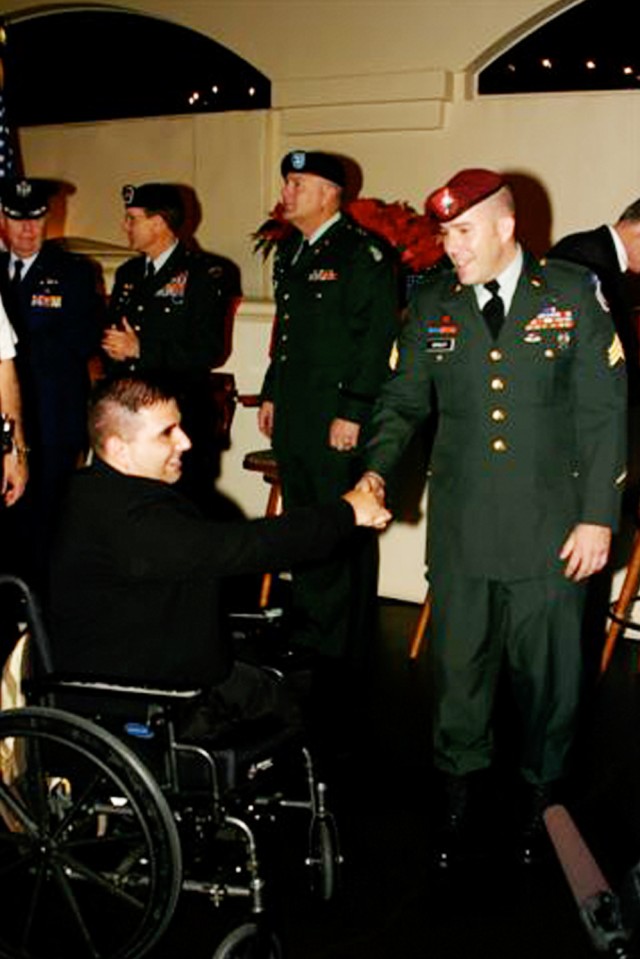
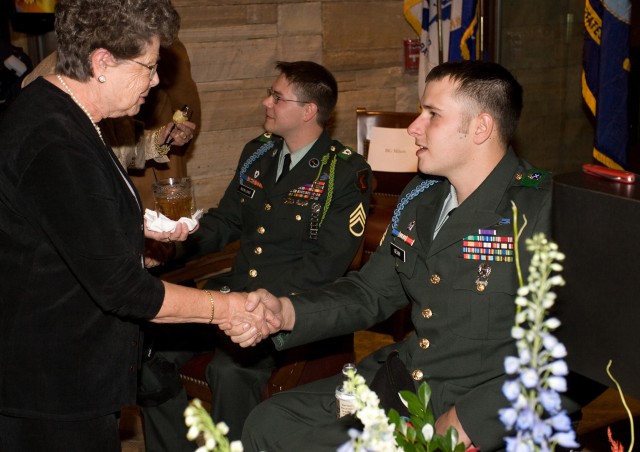
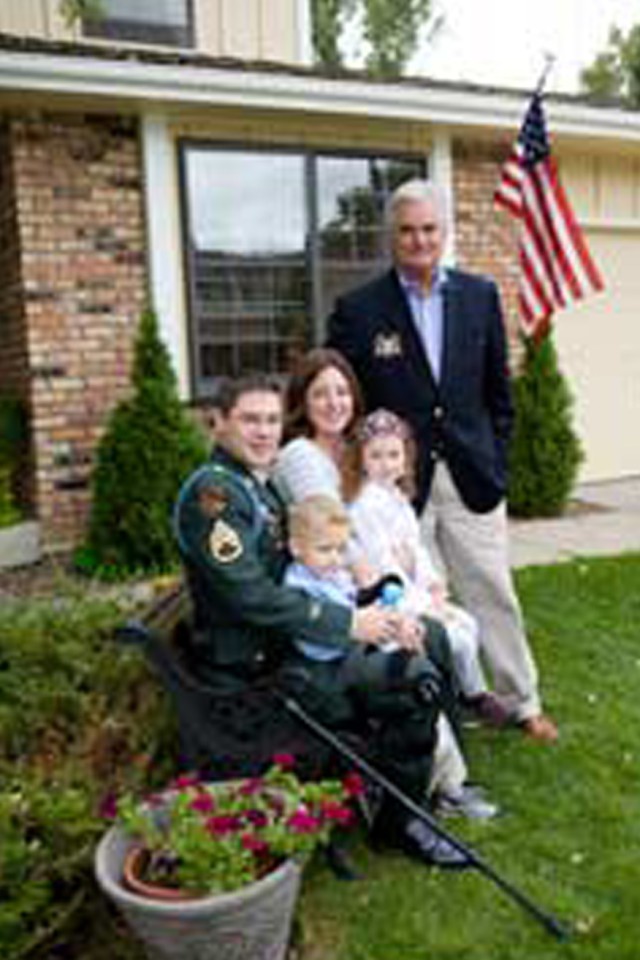
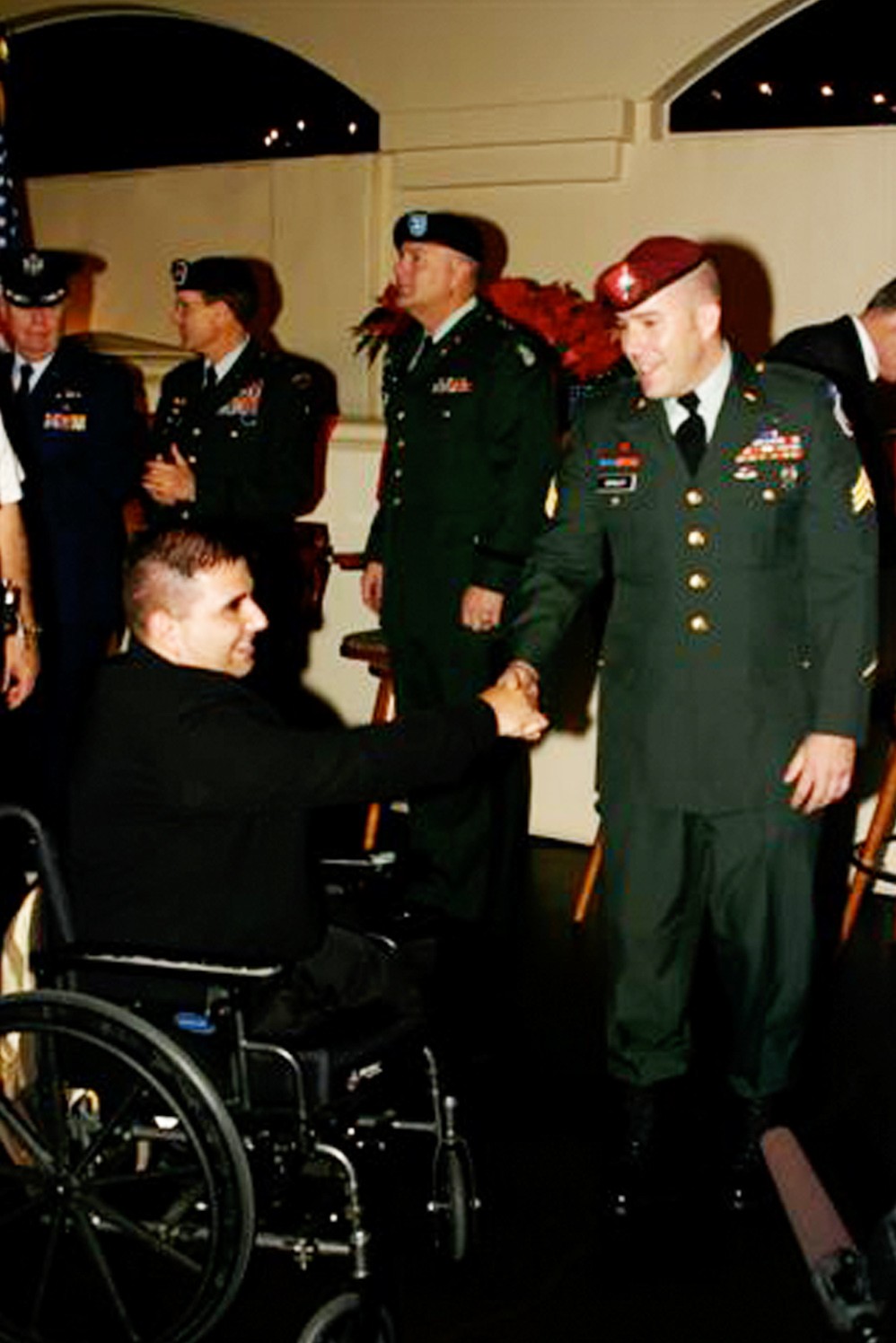
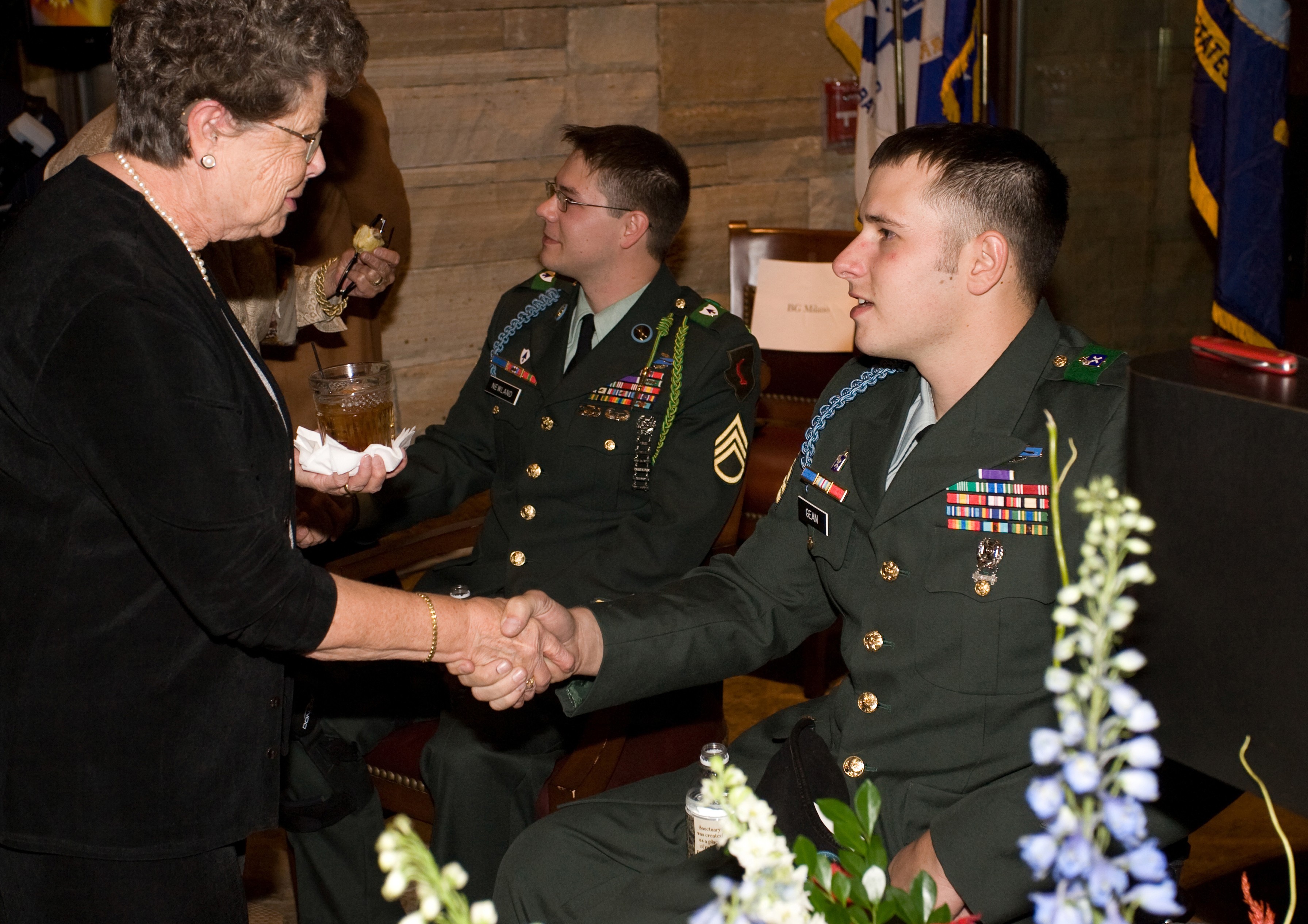
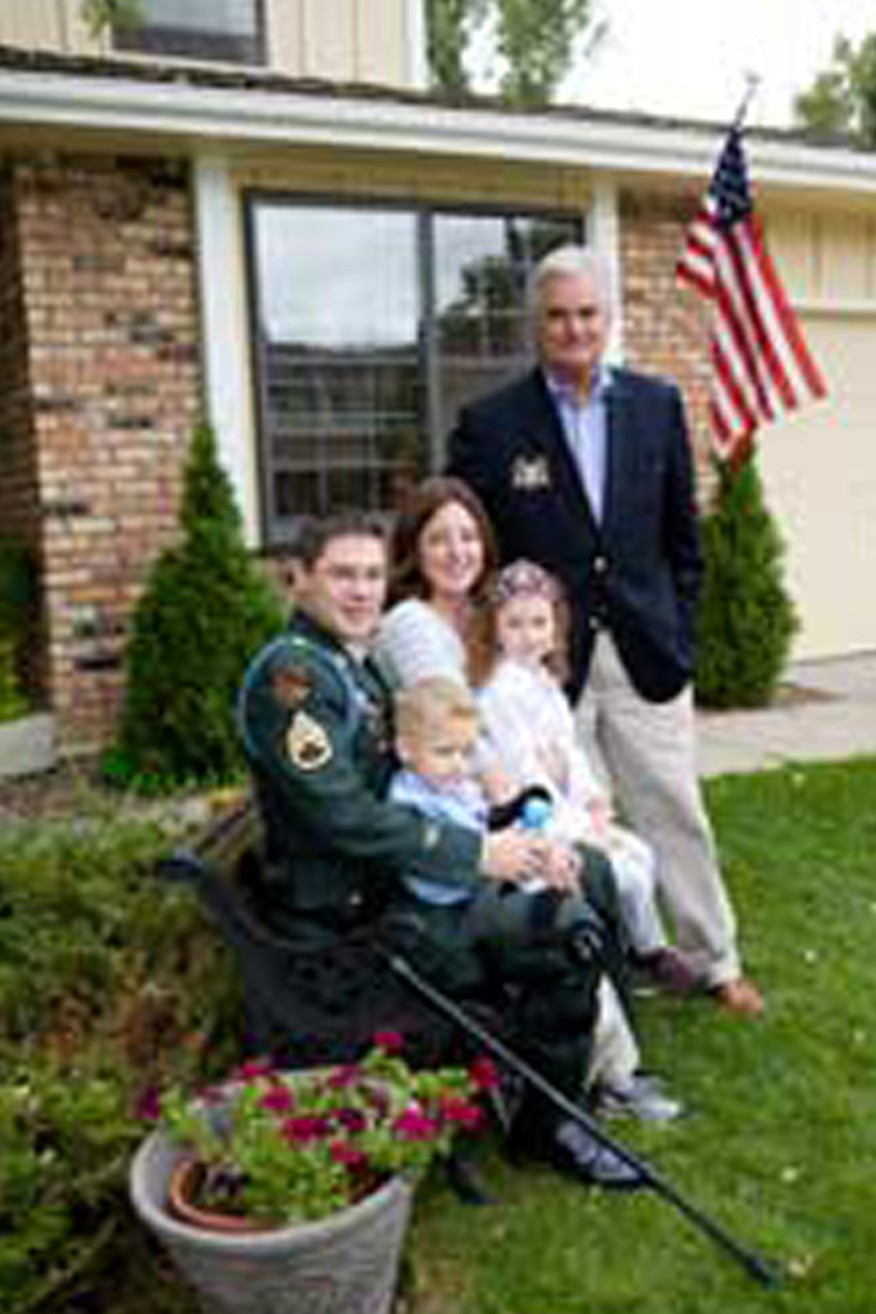
Social Sharing